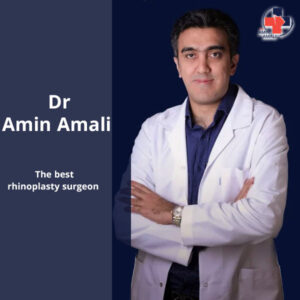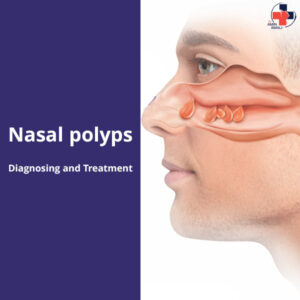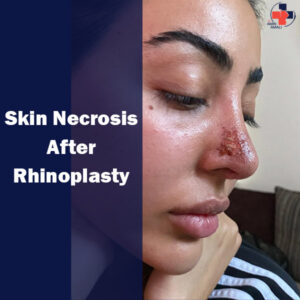The nose, a central feature of the face, comes in various shapes and sizes, contributing significantly to an individual’s appearance. While some people can identify their nasal type, others may need to consult a specialist for a thorough examination to determine their nasal characteristics. This article explores one of the most intriguing types of nasal surgery – thin skin rhinoplasty. Thin skin rhinoplasty is generally suitable for individuals with slender noses and thin skin, aiming to achieve the best possible appearance through surgical intervention.

Thin skin rhinoplasty benefits
- Improved Respiratory Function: It can enhance airflow and make breathing easier by addressing structural issues that may hinder proper ventilation.
- Enhanced Aesthetic Appearance: The correction of nasal bone shape can improve the overall appearance of the face, boosting the patient’s self-confidence.
Who is suitable for thin skin rhinoplasty?
this surgery is suitable for individuals facing the following issues:
- Respiratory Problems: Individuals with structural nasal problems affecting breathing may benefit from thin skin rhinoplasty.
- Nasal Shape Discrepancies: Those dissatisfied with the appearance of their nose may find thin skin nose surgery helpful in achieving a more harmonious facial balance.
- Trauma and Accidents: Individuals who have experienced trauma or accidents resulting in nasal bone damage may require this kind of nose job to reconstruct and restore the natural appearance.
Is there any risk following thin skin nose surgery?
- Risk of Infection: Like any surgical procedure, thin skin rhinoplasty carries the risk of infection. Proper hygiene practices during surgery can minimize this risk.
- Potential Side Effects: Thin skin rhinoplasty may be accompanied by side effects such as bleeding, swelling, and pain. Returning to regular activities may take some time.
Key Points
Professional Consultation: Before deciding on thin skin rhinoplasty, it is crucial to consult with an experienced rhinoplasty surgeon. They can provide comprehensive information about possible changes, surgical techniques, and expected outcomes.
Physical Preparedness: Preoperative tests and an assessment of your physical condition are necessary for thin skin rhinoplasty. Individuals with chronic conditions like diabetes or high blood pressure should discuss potential risks and recommendations with their doctor.
Expectations and Realities: Setting realistic expectations is essential. While thin skin nose surgery can improve the shape and size of your nose, the final result may differ from your imagination. Discuss your expectations thoroughly with your plastic surgeon to have a clear understanding.
Recovery and postoperative care
After thin skin rhinoplasty, a certain period of rest and limited activity is necessary. The duration of rest depends on your specific case, so follow your doctor’s guidance for a smooth recovery.
Adhering to postoperative instructions is crucial. This includes taking prescribed medications, using anti-inflammatory substances, avoiding nasal impact, and attending follow-up appointments with your doctor for evaluation.
Rest and Relaxation: Adequate rest is crucial post-surgery. Limit heavy activities based on your doctor’s recommendations.
Medications and Postoperative Care: Follow your doctor’s instructions regarding medication usage, including pills, drops, and anti-inflammatory substances. Proper care, including nasal irrigation and dressing changes, is essential for optimal healing.
Preventing Nasal Impact: Avoid activities that could potentially impact your nose during the recovery period. Sports, heavy lifting, and situations where your nose may be at risk of injury should be avoided.
Nasal Care: Maintain the cleanliness and dryness of your nose using nasal irrigation as per your doctor’s guidance. Gentle cleaning with saline solution is recommended.
Postoperative Appointments: Schedule and attend follow-up appointments with your surgeon for assessments and adjustments. Your surgeon will monitor your progress and address any concerns that may arise during the recovery period. It is essential to stay in constant communication with your surgeon and address any questions or concerns. They are your best source of information regarding care and the return to normal activities.












